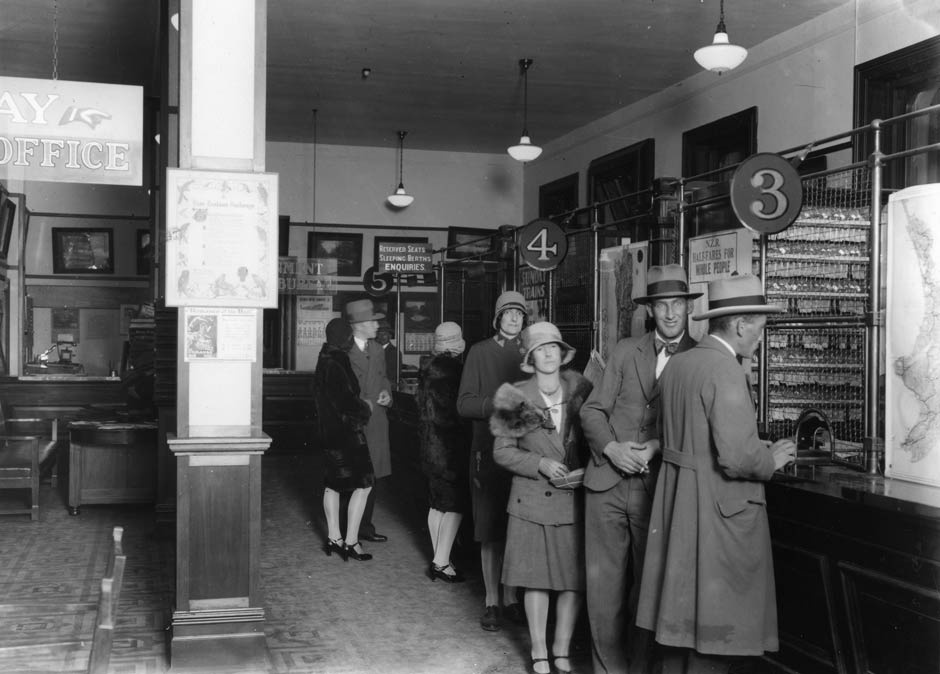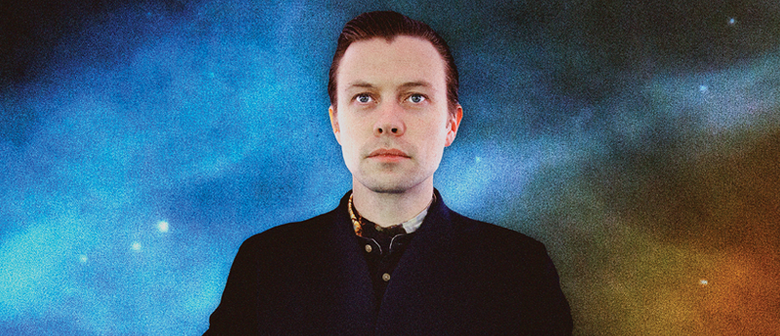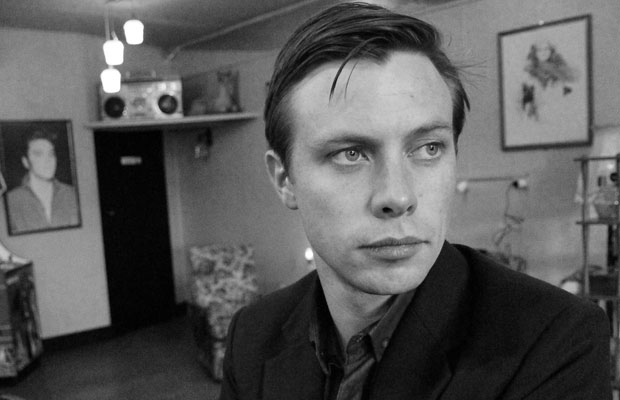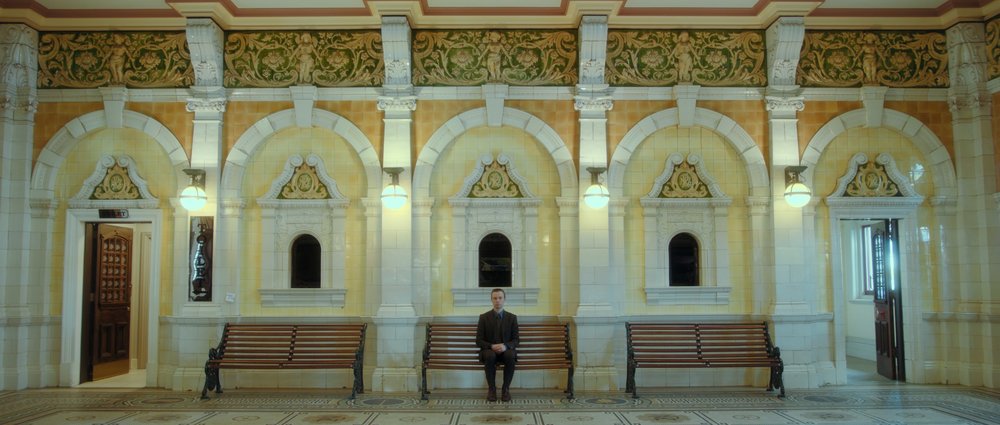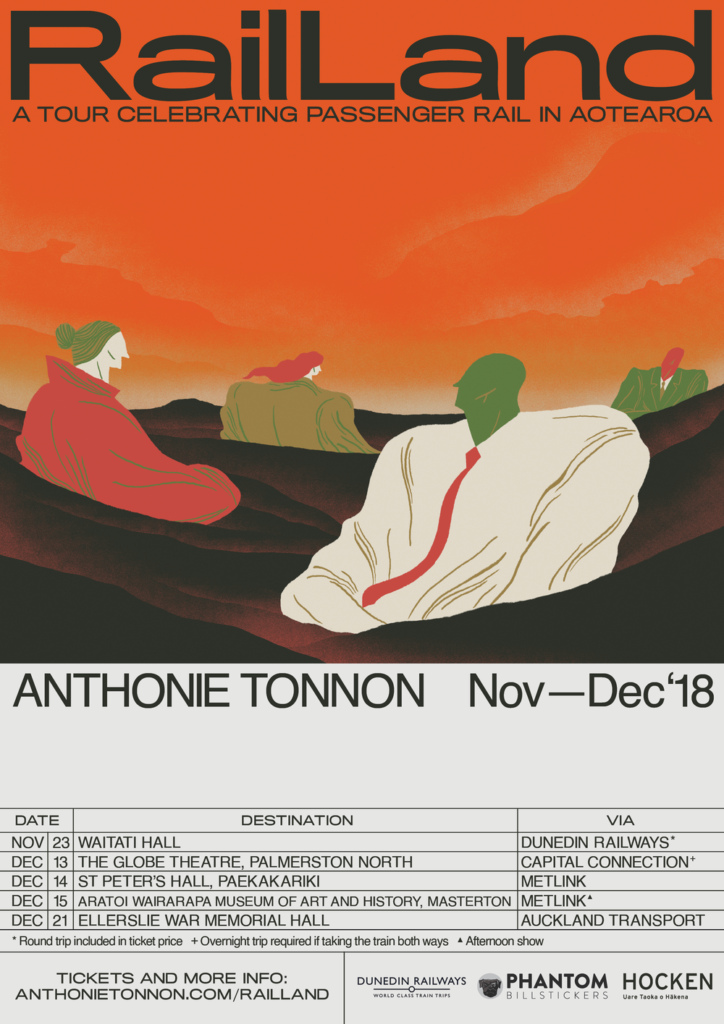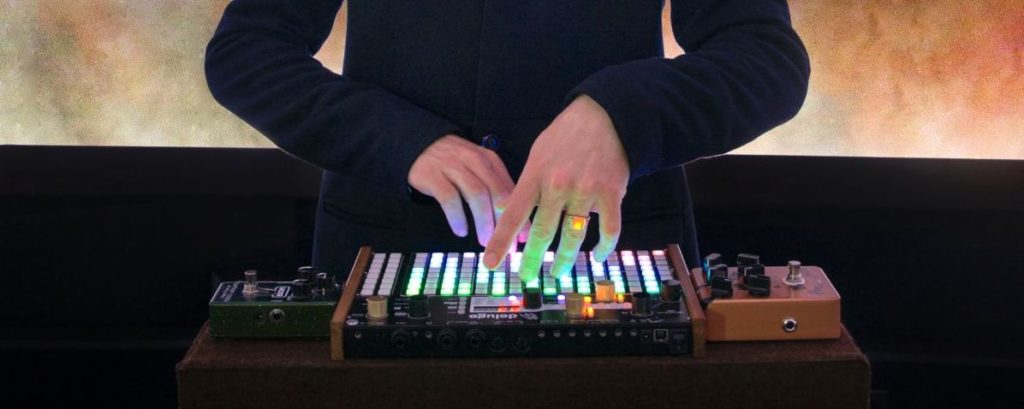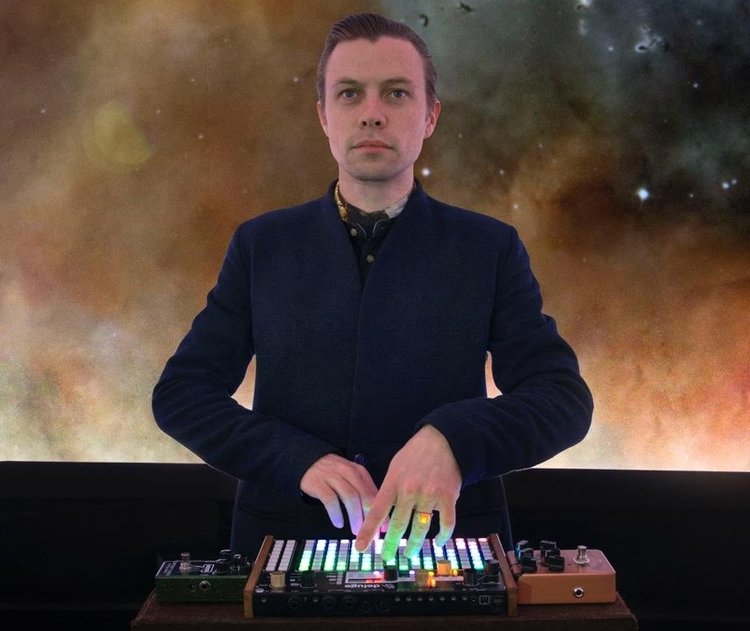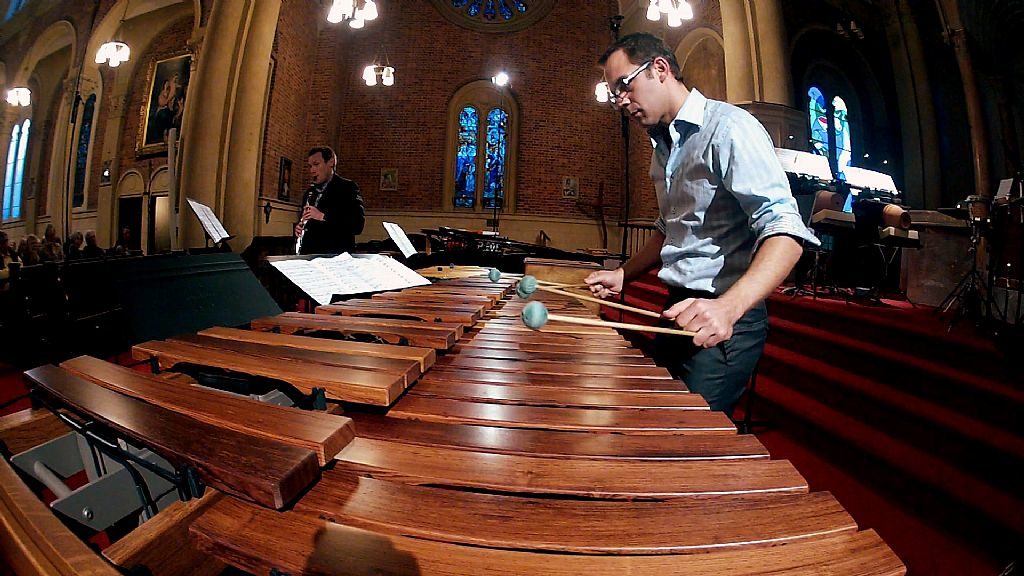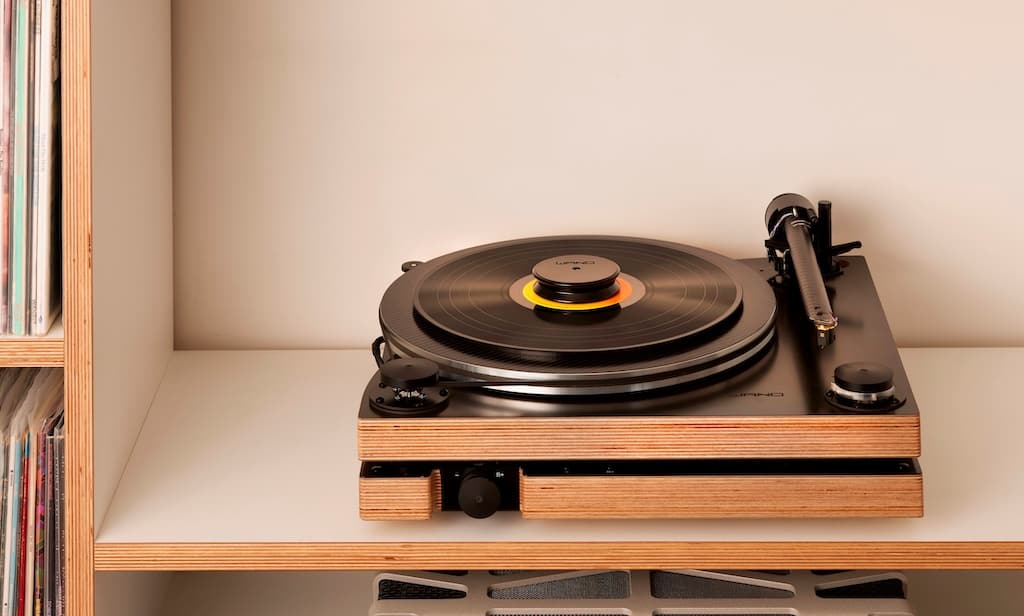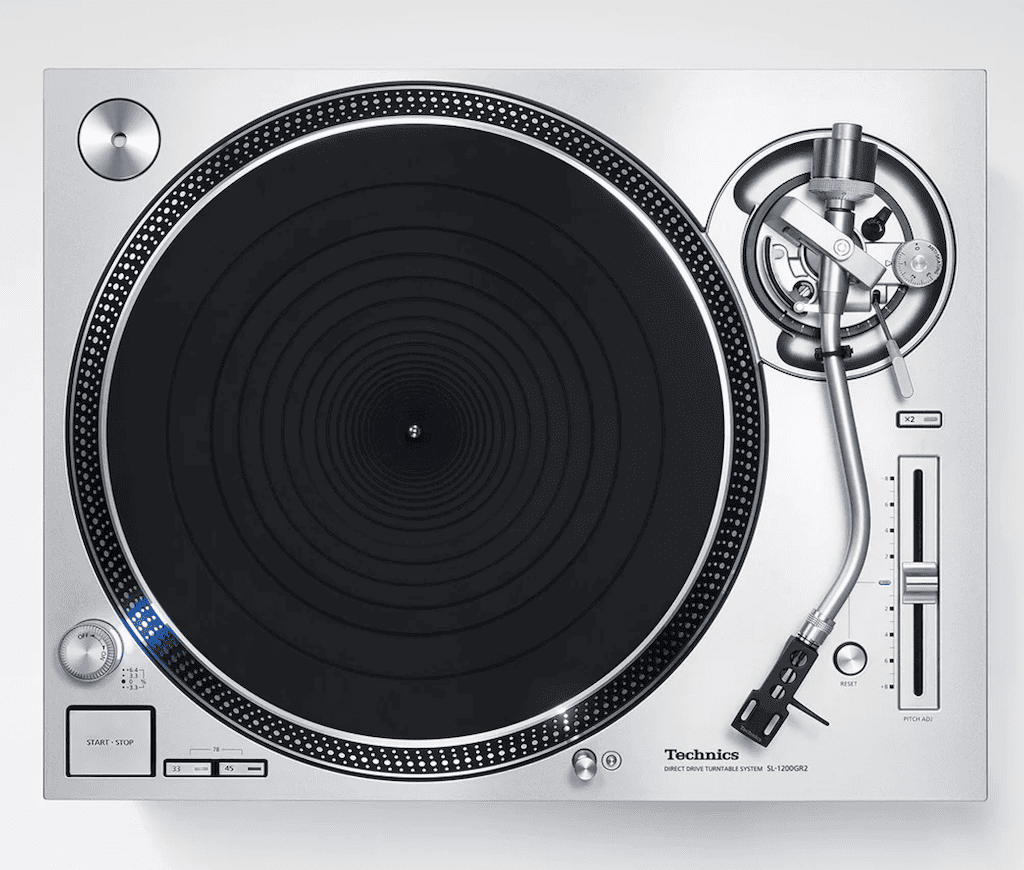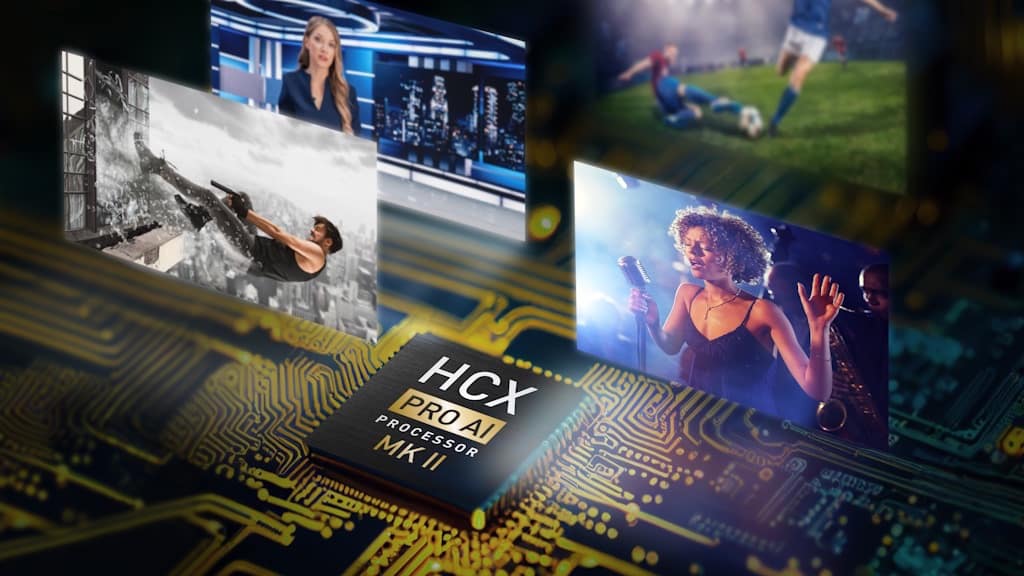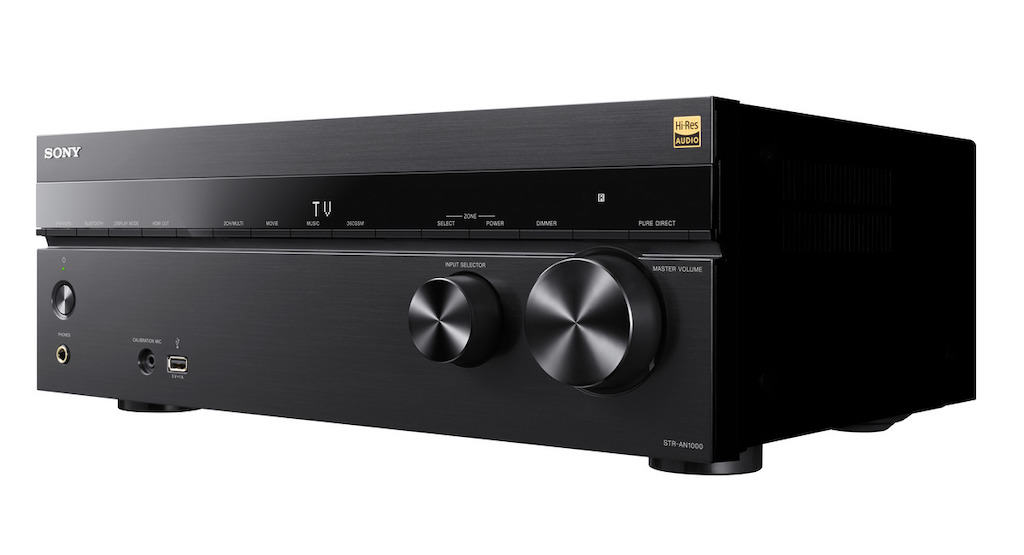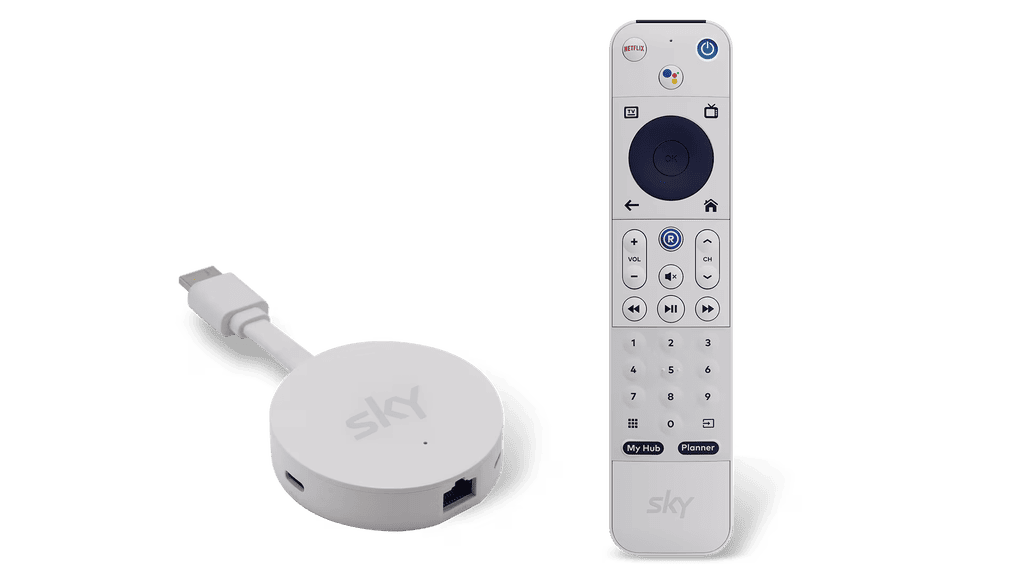Anthonie Tonnon’s is one of New Zealand’s most well-regarded singer-songwriters. In this long-form interview with GARY STEEL, he talks about his novel Rail Land tour and the ‘A Synthesized Universe’ Star Dome performances that bring him to the Auckland Festival.
Anthonie Tonnon – Oh, very well. The wind finally stopped down here in Whanganui, it’s been windy for the last few weeks, so it might even be swimming weather I think.
Gary – How long have you been living in Whanganui for?
Anthonie – For just under two years.
Gary – Interesting choice. Is it for family or do you like the place?
Anthonie – I guess I came here to play shows. It’s always been that rare thing of it being a small town with a cultural underground, and it has that great venue space, Moxa. So I had some friends here and my wife has close friends who were our age, and they own the fire station and were experimenting with it being a wedding venue and they invited us as a wedding present to get married there. And they’re quite astute people, and I think that was a clever move on their part to plant the idea of us moving down here, and two years later we ended up doing it. But it was a combination of things. Her family live on the Kapiti Coast, and we live just two hours from there.
We had a nice life in Auckland, and a good landlord who lived upstairs and our rent never changed, but we knew that if that situation ever changed then we’d be looking at paying double the rent, and we were doing the same thing every week and just getting older. Whanganui was a chance to… we could buy a house and have three rooms instead of a 1-bedroom apartment and it’s a good place to be based touring. Like I’ve been doing shows this summer – I did the New Plymouth Festival and the Botanic Gardens in Wellington. The thing that I found frustrating about Auckland was that you’d think that in a big city it would mean more work for a musician, but the rule seems to be that you can only put on a good show every six months or so. I play as often in Auckland as I do in Wellington, so it works well.
Gary – We considered moving to Whanganui, but we thought it was going to be a bit cold, and moved to Baylys Beach instead.
Anthonie – It’s secret that Whanganui has amazing weather. We expected it to be colder but it sits in a magic zone. It’s away from the wind of New Plymouth and it’s sheltered from the Wellington weather. But I love Baylys Beach, we used to go and play at a The Funky Fish.
Gary – It closed, unfortunately.
Anthonie – That’s a pity. They had a lot of heart, but I know they found it tough, and they were always having a little bit of trouble. But I love the coast around there. How do you find it? Do you still feel just as connected to the world?
Gary – Well I’m quite the introvert, and I like my own company… When I go to Auckland I meet up with a bunch of people in one day and then I can’t sleep, because it all goes round and round in my head. But I love it here, and with social media and the connected world there’s nothing not to like, really. And I guess the main reason we moved here is that it’s a two-and-a-half to three hour drive to Auckland, so I can easily do that once a month and catch up with people, although it would be much preferable if there was a train line.
Anthonie – Oh gosh, don’t get me started on train lines. I got the taste… once a year when Vintage Week is on, they get one of the enthusiast societies, which all seem to be in the lower North Island, and I got to take a steam train, I didn’t particularly care that it was steam, but I cared that I could take it, so I took it from Otaki, where I had a show, to Whanganui, and it was just so civilised. There certainly was a line to Dargaville as well. I’ve got the 1930s railway system maps on my wall.
Gary – I read and really liked the piece you wrote in The Spinoff about all of that.
Anthonie – Oh cool, yeah. I felt compelled to do it, and I haven’t used my history degree at all since I left it. I went down to the Hocken and got out the ephemera, looked at old ODTs, and it was really rewarding to do and it was that rare thing where you felt like doing hard work for something that didn’t pay anything. And I’ve always had that with music but not very often with a piece of writing.
Gary – Is the train project that you were doing late last year… it seems to have happened at the same time as the Synthesized Universe one. Which one came first?
Anthonie – It was actually the Synthesized Universe, but there is a connection. When I had the railways idea I knew I had to do it and I wanted to do it last year. I had the idea in May and so it was at a time when I was developing the Synthesized Universe show, and I was going down to Otago Museum and spending two weeks and working on the show and then I’d drive up to Queenstown to do some other work and generally try to take the more scenic route which follows the old train line, and I had the idea for that tour then. I guess we were making the video in between developing the show.
But I think what connects them is the idea of getting away, of not accepting the traditional boundaries of what happens in a show. I love the usual kind of rock thing, it’s what I grew up in and I’ve always tried to do my best with it, whether that’s coming to the venue really early and annoying the bar staff by having to move all the chairs around to make sure that there’s no backs facing the stage or… I’ve always felt that you can only achieve so much in the show portion itself, and sometimes you’ve got to actually get in there and it’s about the preparation you do before the show, and Rail Land became an extension of that because it just said the show starts when people get on the train to the venue, or even before, so the whole thing was an experience rather than just this time when you’re in the venue.
Anthonie – And Synthesized Universe really helped with that because it showed me what could happen if you went into a non-traditional environment. I loved with Synthesized Universe that I went from this bar model… I sometimes say the only thing longer in New Zealand than a gig is test cricket… this model that we’ve had for some time where you’re told to get there at 8 but nobody does; they get there at 9, and the band doesn’t believe the audience either, so the band doesn’t start until 9.30 and then there’s three bands, so you’re there for four or five hours.
And so it was so refreshing to do this show in a museum. People turned up half an hour before the show, had a drink and a chat and then they were gone after an hour and a half and then the next lot of people came in. I loved the possibility of doing a show that really does just last an hour so that on the one hand by doing that it means that people could plan their night and go ‘you know what, I’m going to have dinner before the show, I’m going to go to the show and then I’m going to go and do something else, maybe I’ll go to a bar I like’ or something. But in the Rail Land concept it meant that by having the show very short and defined, about an hour and five minutes, the rest of the show became the experience of taking the train.
Gary – Really interesting. I guess traditional rock gigs are built on the idea of the audience being built up into a frenzy and what you’re offering is something more thoughtful and cerebral and experiential in a different way.
Anthonie – Yeah. The old model can work, but it doesn’t necessarily need to be the same… you can change the format if it doesn’t work for you. And I think that’s what was missing. It didn’t click earlier on that you could change the format so drastically, and I find it has an appeal too. Certainly it was amazing, we sold three or four times what I would normally expect to sell in Dunedin for Synthesized Universe, and I think it’s that combination of a different venue, a different way of thinking about the show, and obviously Synthesized Universe has got some other things to it as well.
The thing that attracted me to it is that I’m always playing 50 to 200 shows around the country and every now and then I get to go to a big gig at the Spark Arena or Mt Smart and I get to see what’s going on with all the audio-visual stuff that can happen at a show now. I saw Radiohead a couple of years ago and I just thought it was so interesting how instead of… you didn’t really have a chance to talk to the person next to you, and I was in a random seat so I was just in a little island of people I didn’t know, and you can’t really see the band, you could see that Thom Yorke would raise his arm because he has to give big gestures so that you feel something personal, but then what you’re interacting with is this amazing audio-visual show and I could see that the people around me were having this very individual relationship with that and their memories of the songs, almost like being on an airplane where everybody has their own entertainment feed.
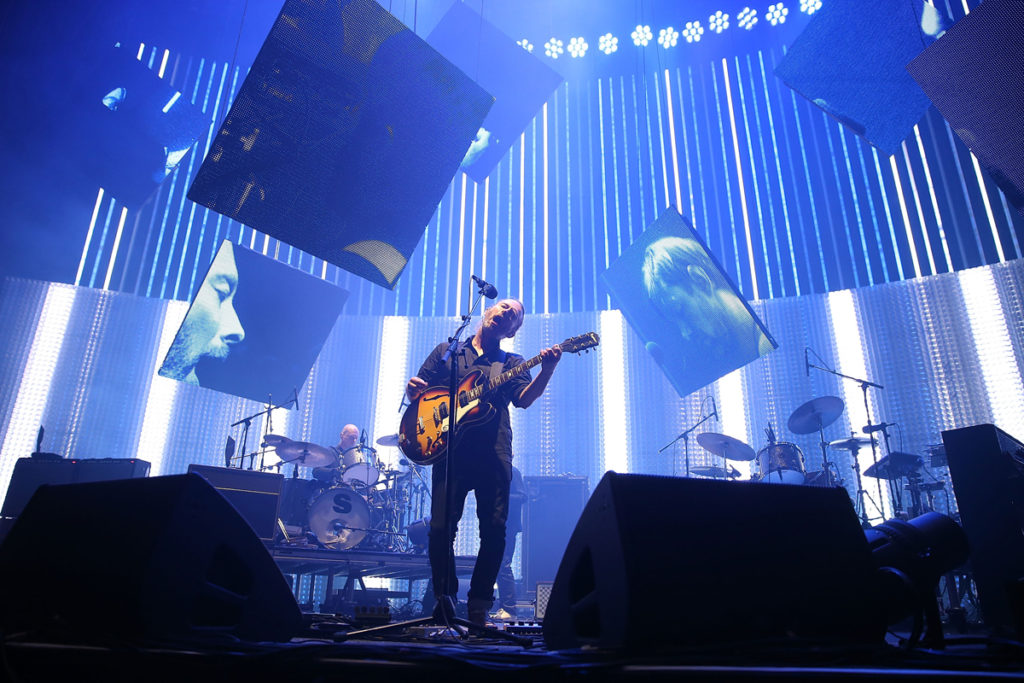
So when we started talking about Synthesized Universe I realised that it could be that, but for an audience of only… well, at the time the capacity of the Otago Museum was only 50 people. So here’s a show for 50 people and yet it can have the detail and immersiveness of that Spark Arena show. And in a way that I can afford through the good luck that Dunedin had invested in a half a million dollar planetarium, and they’d only purchased it maybe five years ago and Ian Griffin, the director of the museum, he wanted it used beyond just playing songs, and also work on developing their own shows from the software that they’ve got for these planetariums which is almost like at its core a Google Earth for the universe. And it’s got zany animations and digitisations built within it. So I guess when I came in and I saw what they were doing with it I could see that we could use it as a base to work on, flying round the universe, and we can figure out how to turn it into a show, and there were a lot of unexpected twists and turns.
Gary – Is the Otago Planetarium the only time you’ve done it prior to the arts festival?
Anthonie – Yes. I’ve done it twice with them now and refined it a bit more the second time, and we’re refining it a little more for Auckland. The planetarium’s larger so we’re changing a few things each time as we go.
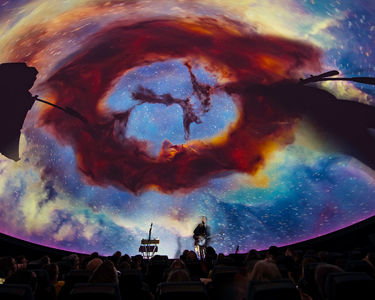
Gary – The material you’ll be performing, is that specific to the show, does it incorporate general songs from your catalogue?
Anthonie – Yeah, it’s similar songs to what I’m playing when I do a regular set. Most of it is material that will be on the next album. It’s probably a good picture of what my next record will be like, which is a lot more like ‘Two Free Hands’ than it was like my previous album, and it’s sort of… the show’s only possible at this moment as well with the technology that I’ve been using in the last couple of years. It’s all rather serendipidous in the way that it’s come about, because after my last album I did a lot of solo touring overseas and I was really interested in trying to make that show good and when you don’t have band members you lose the communication between band members onstage that I think can build that momentum and that frenzy that you talk about that you build in traditional live shows. I think that comes from band members. So when you don’t have that you need to communicate with the audience instead, so the show started with doing things like trying to find interesting ways to interact with the audience.
Anthonie – And then I started adding new technical experiments as well. I went to the Audio Foundation where they can help you build effects pedals and electronic equipment and stuff and I built myself a matrix mixer with their help so that I could connect different kinds of instruments together, and after about a year and a half of doing this and playing lots of shows this instrument, completely serendipitously, called a Synthstrom Deluge was released, an instrument invented in Wellington. It was doing a lot of what I was already trying to do but in a much more sophisticated way, so I got one of those, from the first run, and I started taking that on tour, and it was through that that I started to get obsessed with public transport as well, because I used to carry a keyboard and a guitar all around the world as well as my luggage and my merch, and so I had to take taxis or Ubers whenever I got to an airport.
So I started trying to shrink the set-up to the point where I could get on the train or the bus and switch to the train to the airport without trouble, and luckily as they kept adding firmware updates to the Deluge the possibilities became greater and greater to the point where now, even my electric guitar goes into the Deluge and then I process FX on top of it, and my keyboard went from needing to be at least 64 keys down to a 32 keys, because with the Deluge I could build a piano into the inbuilt sampler and if I needed to play a low octave I could just put the low octave notes onto the black keys that I wasn’t using. And so I got to the point where I had one roller case and a guitar and everything was output to the sound desk except for the microphone.
That’s the point where I met Dr Griffin, who came to a show in Dunedin, and introduced himself afterwards and said ‘would you play a show in the museum?’ I turned up a couple of weeks later and it wasn’t until I got there that I realised he meant in the planetarium. But the amazing thing is that we could see right away that it would work because I just plugged in the stereo left and right of my Deluge and it has a 5.1 surround sound system and the amazing thing about that is that I hear exactly what the audience hears rather than being in this world where the performer has one sound system for them to hear and the audience has another one. Suddenly, I didn’t have that so I didn’t need any monitoring. And in that Dunedin show I mixed it myself because it was so simple: plugging in the Deluge, attaching a reverb unit to the desk for vocals. So in many ways the very different environment started offering really different ways to think about what the show was.
Gary – Just to get my head around it, the 5.1 surround system, it somehow converts the two-channel to 5.1?
Anthonie – To be fair, I’m not doing a 5.1 mix. It would be great! And we do have a sound engineer this time. We’re just doing a stereo mix that basically splits the dome in half but what it does mean… you’re probably not hearing quite the same stereo mix, not that it makes much difference in this context, because you’ve got five speakers pointing from behind you as well.
“I still consider myself very much an album person and I try as hard as I can to listen to whole albums.”
Gary – It should sound quite holographic in the planetarium anyway.
Anthonie – Yeah! But I guess… planetariums, because they’re mostly set up by the same company around the world, and they have the same visual software as well – generally that’s what makes it possible to move from one to the other. But the good thing about it is that they have very nice sound systems, very great speakers and they’re raised in such a way that I didn’t really have any trouble with microphones feeding back or anything like that. And the visual software was interesting as well. They generally run on this thing called Digi Star. The potential was there right away when they started bringing out some of the things that they could do, like flying to the moon or to mars or something, but what we did over the week we developed the show… it’s almost like being given a cheesy keyboard from the ‘80s: you’re going to find three or four sounds on there that are just amazing, and the rest is going to be kind of naff. It was a process of trying to see as much as I could see of what the planetarium could do, and some of it is really stunningly beautiful, and figuring out where its strengths were and where what it did visually met my taste as well, and then honing in on those. So there’s a little bit of pre-planned flights around the solar system of celestial objects and things, and then the rest became right, what we want here doesn’t exist, and how can we make it. Andrew Charlton, who ended up animating a lot of the show, he did these great custom animations that in a lot of the ways are one of the most interesting parts of the show. But I guess having the universe fly around gives us a basis and something we can improvise with.
Gary – And the little synthesizer itself, I notice it’s got all these colours on top of it. Are they significant? Do they help you find the right notes in the dark?
Anthonie – Well it does – they always seem to pack them with flashing lights to make them look cool, but I have to put it on its least bright mode because the slightest light pollution can really dull the effect of the planetarium. But what we have done… the Deluge works like Ableton Push… lit-up buttons you can hit. So we can actually use that to control lights as well. Andrew built a script so I can send Midi information from the Deluge, so that I can play the keyboard and I’ll have a palette so I’ll know C is pink and so on, so I can play colours on the keyboard or if I’ve got built drum beats on the Deluge I can imitate that drum beat with lighting events and make them happen at the same time.
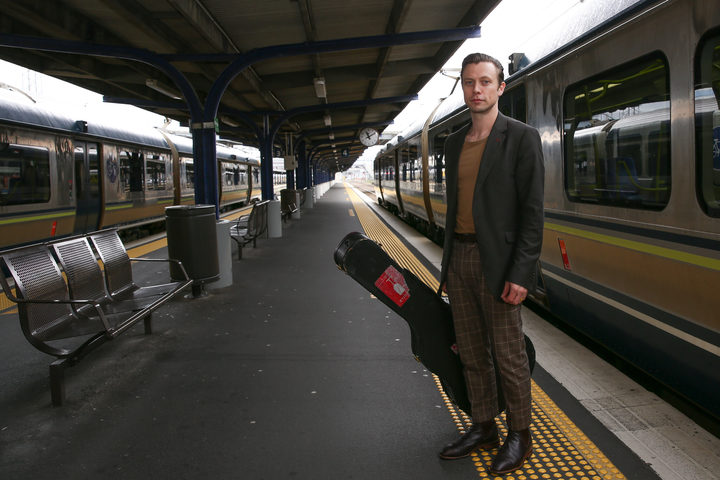
Gary – I wondered if part of the reason for both the train project and this was that it kind of – not a replacement for the usual album-tour cycle but something DIFFERENT, given the fact that it’s not possible to sell that many albums anymore.
Anthonie – No, I’ve been thinking about it a lot too because it’s subtle how it happened. I still consider myself very much an album person and I try as hard as I can to listen to whole albums and it’s still my preference, but isn’t it amazing how Spotify or Apple Music… it’s like they’re training me like they’re training a dog, by giving me this pre-made playlist every week that’s invariably pretty good, it’s tricking me. Every week I listen to this music and I never bother to look on my phone to see who the artist was but the one song of theirs that I liked. And I’m just so used now to listening in that way. It’s kind of frustrating.
But I didn’t expect that I was moving away from the album in doing these kinds of things but it is about work. I’ve been quite practical in the last couple of years in saying that the only thing that matters is work. I’ve been really lucky the last couple of years to do this as mostly my job and the reason is I have enough days on the calendar where I’m working, and maybe at some point, it never was for me, that you do a tour and then sell records and the sales of those records would actually come to you and be your main income. I’ve sold more and more records, even with the decline of the physical album, I’ve sold more and more physical albums… When I started I was probably selling a couple of hundred, 300 CDs or something. I’m getting up to maybe a thousand CDs of my last album and I keep having to make more. I never sell them through a website, for example, and that’s really telling. Like I’ll sell maybe 15 a year through my website, because when you’re looking rationally on a website you know a CD is completely worthless, but then when you go to a show you want something to take away and I always stand behind the merch desk, and by having the performer there with your work at the end of the show suddenly you give this magical power to the CD. So I still go through a lot of CDs, and obviously vinyl’s selling. Even when people were proclaiming the death of CD and the rise of vinyl a few years ago I would still sell 3 to 1 CDs to vinyl. It’s now probably about 1 to 1. But I also sell things like t-shirts and socks, good screen-printed posters. And by doing these tours that are more of an experience; the more of an experience they are and the more special the more people feel like ‘this was something special for me I want to remember’ the more they’re going to buy something on the merch desk, or probably more importantly tell people to come along to the next one. Because in truth, while the merch is great it wouldn’t pay the bills. Really the best way that I can have an income is to do the shows.
“I started to get obsessed with public transport as well, because I used to carry a keyboard and a guitar all around the world as well as my luggage and my merch.”
I’ve had to learn to do accounting in the last few years. When you do the GST you realise that every time you sell a CD for $20 you have to pay $2 GST, and then of course you never account for that in the first couple of years and then it comes back to bite you. By the time you’ve put production costs and everything the merch stuff doesn’t make as much as you think it will. I think albums have to work on scale. In that old model where not only were you paying those sorts of costs you were also getting a small portion after distribution and everything… you would have just had to sell so many of them.
Gary – I imagine you’ve thought of doing book projects or book and video projects? It seems to me that you’ve got quite a unique interest in history and different facets of New Zealand and putting out limited edition hand-bound book projects with music attached or visuals attached, like an art thing, might be quite a nice way to do it as well.
Anthonie – Yeah, we did actually look into doing it for Rail Land, the plan was to make a book but when we looked into it the production costs were really high compared to making another run of socks or making some more t-shirts, and in the end I put a lot of the content that would have gone into the book onto my website, and that’s been quite good. The website’s been a really big thing for me. It’s a balancing act in this time of transition, between what’s familiar and what feels like a tradition, like your traditional job and what works, and that’s why it’s not worth throwing out those CDs.
Anthonie – I toured with this folk musician in America, and she goes round these small towns and lives on the road permanently, never keeps an apartment, and then when you get back to Seattle, go back around, the country’s big enough to do it. And I sold out of CDs half way through the tour and she said to me ‘right, we’re going to make hobo merch’, and I said ‘what’s that?’ and she said ‘we’ll burn a bunch of CDs and we’re going to draw the album covers, and you’re still going to sell them for $10’, and I said, ‘couldn’t we make a pretty download code or something?’ and she said ‘no, it doesn’t work, you make a download code, no one will buy it, make a CD, and make it as crappy as you like, and people will buy it’. And it’s true, because there’s still the tradition of buying CDs and I think those traditions are powerful.
So I’m in this balancing act of not throwing out what makes me seem like a musician as opposed to an author or something, but at the same time the website and putting more content on the website and making that people’s first portal for buying tickets and things has been really helpful because it means that I’m engaging with people in ways that I can control, whereas before I was selling for peanuts on Facebook and other social media and it became more expensive just to reach the people who ostensibly followed you, you just felt so powerless.
Gary – It’s a shocking scenario.
Anthonie – Yeah. And the way that even if you say something they’re your words but they’re couched in the horrible design format of Facebook. So they don’t really feel like your own, and I didn’t feel comfortable… I didn’t even know what to post anymore because I just didn’t feel comfortable saying anything. It was like having to talk through bad digital signwriting.
Gary – It’s close to a crime the way Facebook has managed to grab all the limelight and… it’s vampiric.
Anthonie – And what they’ve done to media as well.
“Why not make it even more powerful as an alternative to experiencing reality through all those filters and those minute 10 seconds of looking at that article or listening to that song?”
Gary – A lot of the benefit of using Facebook was links to stories but their advertising takes all the revenue away from the people they’re linking to. The really tragic thing is that there’s no alternative. It would be great to start something more democratic.
Anthonie – Well, in some ways I feel lucky because I don’t have a huge audience and I’d hate to be starting now, but the audience I do have I can go and play to 150 people in Dunedin and 200 in Auckland and Wellington and they’ll turn up and I’ll have a real unmediated interaction with them, and I think that’s really powerful and why I’m working so hard on making these interesting shows, because why not make it even more powerful as an alternative to experiencing reality through all those filters and those minute 10 seconds of looking at that article or listening to that song or looking at that video. Get people in to a really attractive whole hour, and just an hour, not three hours, a really condensed way to experience life.
Gary – I know exactly what you mean about conventional gigs. I stopped going to them because I can’t stand up for six or seven hours!
Anthonie – Yeah, especially if you’ve had to drive down to see your favourite band at the Powerstation or something.
Gary – I’d have to stay the night somewhere, sleep on a bad bed… I’m way too old for that kind of rubbish. But like you I like recorded music, I like albums and still like CDs, so… I’ve been to thousands of gigs, I’ve got tinnitus, I don’t really need that many more conventional gigs. But what you’re talking about is exactly a good future for music performance as a viable alternative to the mating ritual that is the typical rock gig. Having a different way of presenting music to people.
Anthonie – I agree with you, I think it’s a good model for anybody, and I think it’s a more viable thing to do in smaller places as well, these kind of shows. Maybe there will be some cool gigs in Dargaville… There’s a guy in Napier who’s showing one way, and there’s other people that do the same thing. He has a bunch of people who will just trust him and they’ll turn up on a Sunday night and they’ll pay $40 and he’ll make them all dinner and he’ll have a case of wine and then he’ll have some folk artist that they’ve never heard of and they’ll play at 8o’clock, on time, and it’ll be a wonderful experience for everybody. And then those shows with everybody paying $40 mean that the artist makes a good income from it, and the guy who runs it makes a good income from it, and everyone has a really wonderful experience. There’s something happening I think at a grassroots level, which is hopeful, I think.
Gary – Yes it’s interesting that what you’re doing is both grassroots and futuristic with this new one. An interesting combination. But yes, I agree, the grassroots thing, there will always be the mega-arena shows but personally I’d rather go to the Wine Cellar to see something than the Vector Arena or the Spark Arena or whatever they’re calling it these days.
Anthonie – [laughs] Yeah, it’s got to change it’s name every five years.
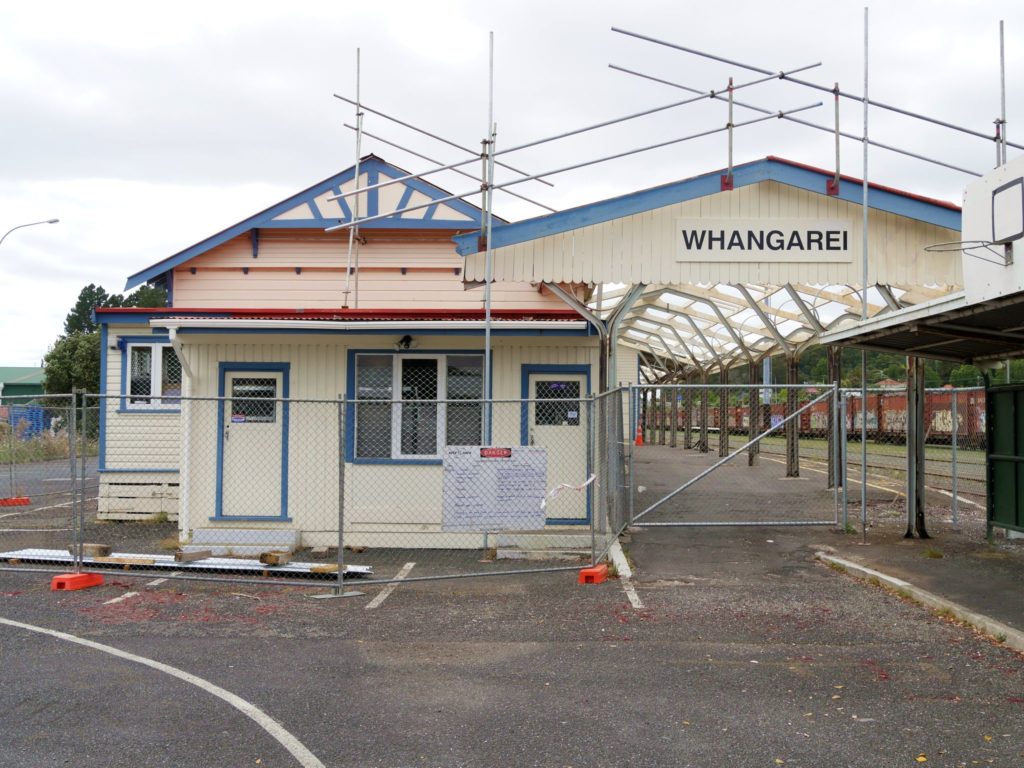
Gary – Whangarei is quite a large place, and that’s only an hour’s drive from here.
Anthonie – That’s true, I’ve been asked to go there, I must do it.
Gary – That’s really accessible for the whole of Northland, and relatively close to the other places. It’s a shabby place but…
Anthonie – If Simon Wilson has his way it’ll be the next Whanganui. I quite enjoyed his piece on the new Hundertwasser and he makes some big calls on what Whangarei needs to be doing, it was a good read.
Gary – I haven’t seen that. Simon’s usually pretty spot-on with his writing about urban centres. He’s done some good stuff about Auckland.
Anthonie – Yeah, which was why it was nice to see him turn to a regional centre, because I’m no longer in Auckland and I’m quite often thinking about these urban things… how do you take some of this thinking in these small towns that aren’t used to having the pressure to do good things.
Gary – Whangarei is unfortunately the victim of bad town planning, the whole place is set out so poorly, it’s nasty in terms of its mixture of roads and industrial and retail, but a little bit of imagination and it could be so transformed, and geographically it’s a really beautiful place, but it suffers in a way the same blight as Tauranga… an incredible place but the town centre is pretty horrible.
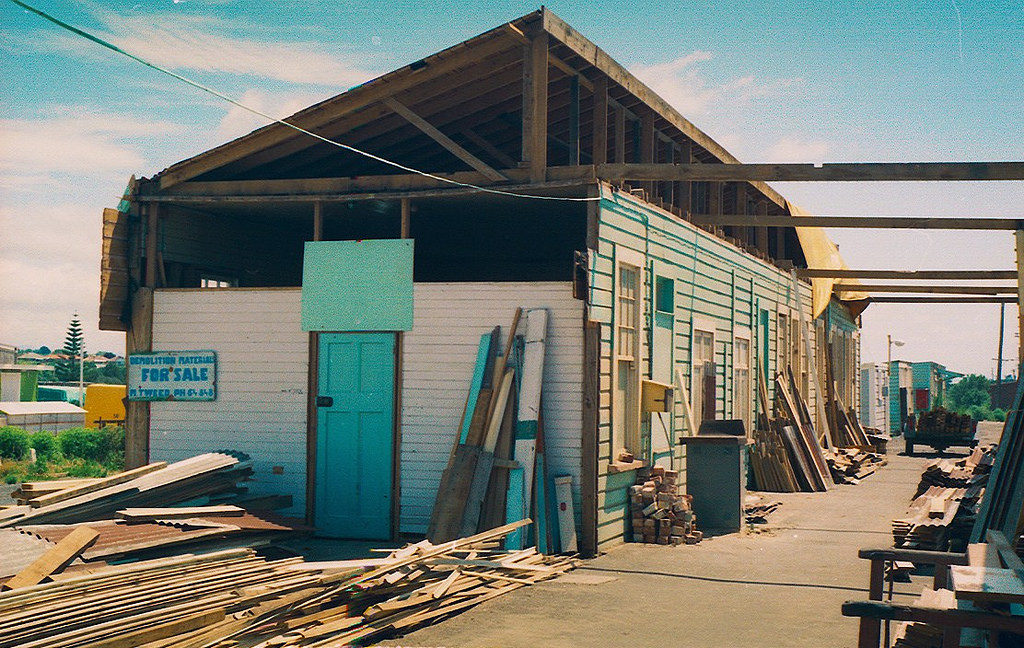
Anthonie – Yeah, what can you do about that place, eh? It’s amazing that you’ve got the fifth biggest city and it doesn’t have a proper museum or art gallery. Does it have an art gallery? It’s got one, but not both.
Gary – It’s a weird place, my Mum used to live there, and I never entertained the possibility of moving there. But again, the weather’s good, the beaches are good, it’s just that it’s got this long road, Cameron Rd, the whole situation is geared towards people in their cars stopping at traffic lights endlessly.
Anthonie – I do think it’s time for the regions, and it’s time they can innovate in that way. I played in Rotorua last year and I really liked what was going on there. I guess Rotorua’s older but has some bones to work with. I always measure a town by whether it has a good cheap bus to the airport, and Rotorua does which I think is great. And Queenstown, where I sometimes do some work, it’s been a hideous place in a cultural sense, but it’s now surpassed Dunedin and Christchurch as the best public transport system in the South Island, and it’s done it in one year, just because someone said ‘enough of this, let’s change this’, and it’s quite amazing what’s happening there in some ways.
- Anthonie Tonnon’s A Synthesized Universe, the Stardome, Thursday March 21 at 6.30 and 8.30, and Sunday March 24 at 4.30 and 6.30.
